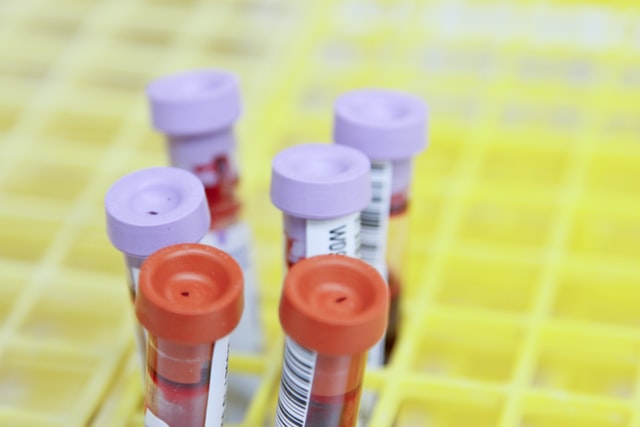New Jersey Keeps Newborn DNA for 23 Years. Parents Are Suing
By Emily Mullin,
Wired
| 11. 08. 2023
image "Blood Samples" by Daniel Sone from the website of the National Cancer Institute
When Hannah Lovaglio’s children were born, she didn’t think twice about the newborn health screening they received in the hospital. The routine test uses a few drops of blood from a heel prick to test for dozens of potentially fatal or disabling genetic diseases.
“I assumed that this was for my child’s best interest and for the best interest of public health,” says Lovaglio, a pastor in New Jersey. What she didn’t know was that after testing was completed, the leftover blood would be stored by the state for 23 years and could be used for purposes beyond medical testing. In a court case that became public last year, New Jersey police allegedly used a baby’s blood sample to investigate its father for a crime.
Lovaglio has joined a federal class action against the New Jersey Department of Health and its Division of Family Health Services, which oversees the state’s newborn testing program. She and the other plaintiffs are suing the state over its storage practices...
Related Articles
By Arthur Lazarus, MedPage Today | 01.23.2026
A growing body of contemporary research and reporting exposes how old ideas can find new life when repurposed within modern systems of medicine, technology, and public policy. Over the last decade, several trends have converged:
- The rise of polygenic scoring...
By Stephanie Pappas, LiveScience | 01.15.2026
Genetic variants believed to cause blindness in nearly everyone who carries them actually lead to vision loss less than 30% of the time, new research finds.
The study challenges the concept of Mendelian diseases, or diseases and disorders attributed to...
By David Cox, Wired | 01.05.2026
As he addressed an audience of virologists from China, Australia, and Singapore at October’s Pandemic Research Alliance Symposium, Wei Zhao introduced an eye-catching idea.
The gene-editing technology Crispr is best known for delivering groundbreaking new therapies for rare diseases, tweaking...
By Josie Ensor, The Times | 12.09.2025
A fertility start-up that promises to screen embryos to give would-be parents their “best baby” has come under fire for a “misuse of science”.
Nucleus Genomics describes its mission as “IVF for genetic optimisation”, offering advanced embryo testing that allows...




